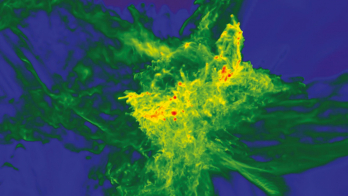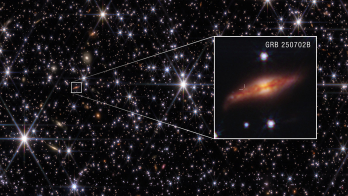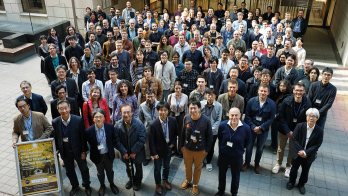The universe is the ultimate particle physics experiment,
and is a wonderful laboratory for effects which make terrestrial efforts seem puny. This new regular round-up of astronews will cover news and new developments in astronomy and astrophysics,
with the accent on the physics.
Galactic downsizing
The Milky Way is smaller and slower than astronomers once thought. A group at Southampton,
UK,
has measured the motions of stars near the Sun and their findings suggest it is 5000 light years closer to the centre of the galaxy than previously thought. Also,
the Sun is rotating at 185 km per second about the galactic centre 35 km per second slower than measured before.
The work may have huge consequences,
as astronomical distances are frequently measured in relative terms. Recalibrating this standard “ruler” decreases the distances to other more distant objects,
and ultimately,
the size of the universe as a whole.
Mars Express
Preparations for ESA’s Mars Express are well underway now the
spacecraft’s scientific instruments have been agreed.
One of their main tasks will be to search for frozen water below the
planet’s surface.
Its discovery would shed light on the
planet’s chemical history and
help show if conditions were ever right for life to have existed there.
Mars Express will start its 700 million km journey in 2003.
Meanwhile,
the Japanese have launched their first Mars probe,
Nozomi,
due to touch down in October 1999. The probe carries instruments to measure interactions between the planet’s atmosphere and the solar wind.







